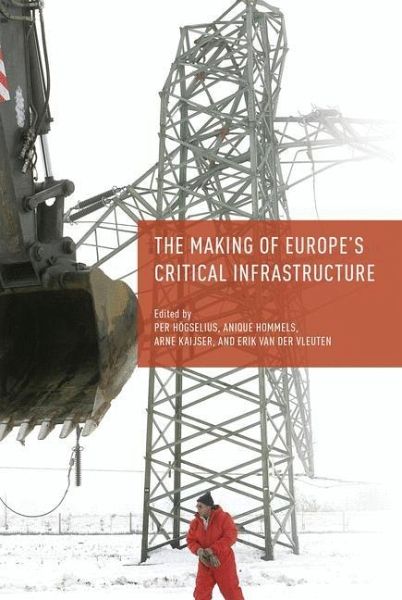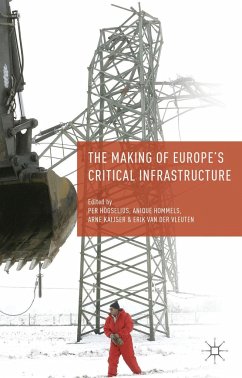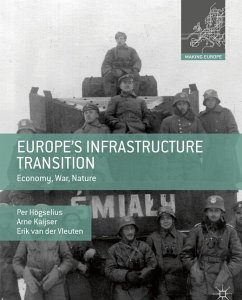
The Making of Europe's Critical Infrastructure
Common Connections and Shared Vulnerabilities
Herausgegeben: Högselius, P.; Hommels, A.; Kaijser, A.; Vleuten, E. van der; Loparo, Kenneth A.
Versandkostenfrei!
Versandfertig in 6-10 Tagen
38,99 €
inkl. MwSt.

PAYBACK Punkte
19 °P sammeln!
Europe's critical infrastructure is a key concern to policymakers, NGOs, companies, and citizens today. A 2006 power line failure in northern Germany closed lights in Portugal in a matter of seconds. Several Russian-Ukrainian gas crises shocked politicians, entrepreneurs, and citizens thousands of kilometers away in Germany, France, and Italy. This book argues that present-day infrastructure vulnerabilities resulted from choices of infrastructure builders in the past. It inquires which, and whose, vulnerabilities they perceived, negotiated, prioritized, and inscribed in Europe's critical infra...
Europe's critical infrastructure is a key concern to policymakers, NGOs, companies, and citizens today. A 2006 power line failure in northern Germany closed lights in Portugal in a matter of seconds. Several Russian-Ukrainian gas crises shocked politicians, entrepreneurs, and citizens thousands of kilometers away in Germany, France, and Italy. This book argues that present-day infrastructure vulnerabilities resulted from choices of infrastructure builders in the past. It inquires which, and whose, vulnerabilities they perceived, negotiated, prioritized, and inscribed in Europe's critical infrastructure. It does not take 'Europe' for granted, but actively investigates which countries and peoples were historically connected in joint interdependency, and why. In short, this collection unravels the simultaneous historical shaping of infrastructure, common vulnerabilities, and Europe.














